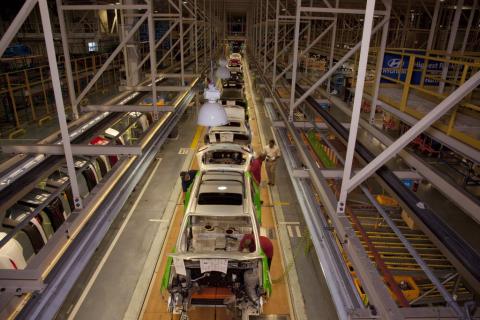Is the USMCA a Win for the Auto Industry?

With the signing of the United States-Mexico-Canada Agreement, the auto industry is expecting to see some changes over the next few years. But will this shift be good for automakers and dealers?
Dana Inc. CEO, Jim Kamsickas thinks it’s a good move stating, "We believe this law will further reduce the chance for disruptions and allow North American vehicle production to remain competitive globally."
The agreement states that 75 percent of components must be made in the US, Canada or Mexico to cross borders without tariffs. Previously it was 62.5 percent. This will raise the bar for keeping business in North America and will in theory create more jobs in the US, and reduce the large shift we’ve seen to production in Mexico.
Some argue that paying the 2.5 percent tariff will be cheaper than shifting production to the US where laborers average $20-30 per hour as compared to Mexico’s $4-7 per hour. Ultimately this would increase tax revenue from automakers by $3 billion over the next 10 years.
The law also requires that the average wage for workers across North America must be $16. US and Canadian wages are typically well above that, but wages are considerably lower in Mexico. The hope is that this will help increase wages for Mexican workers. The agreement also forces the Mexican government to allow workers to form labor unions and collective bargaining units to encourage better work environments for manufacturing workers, something that the Democratic Party pushed for in order to get their agreement to vote the USMCA into effect.
Having easier trade with our neighbors to the north and south allows automakers to stay competitive in the global market by reducing overall trade costs. NADA supports the deal saying that it keeps new vehicles affordable for the American people.
That said, we will likely see an increase in production costs as labor prices will increase in Mexico and automakers will be using less parts from Asia. So we will likely see some vehicle price increases over the next few years.
So while vehicle quality improves and more jobs become available at the plants, vehicle prices will probably increase. Some dealers are concerned that this will hurt their sales numbers and profits. If costs get too high, we could see a stall in new vehicle sales, and a bigger shift to consumers buying used cars. We would hope that automakers would absorb some of these growing costs and most plan to renegotiate part pricing to keep sale prices affordable. But only time will tell if the USMCA will be good or bad for the auto industry.






